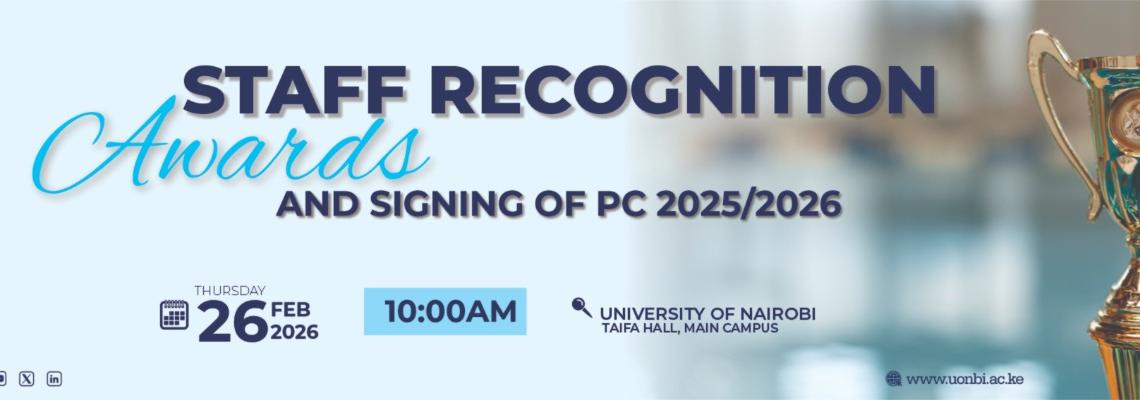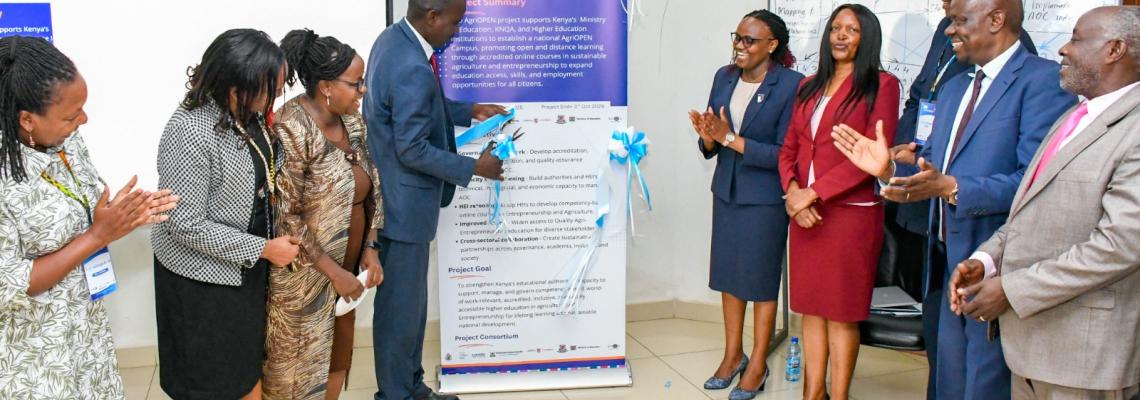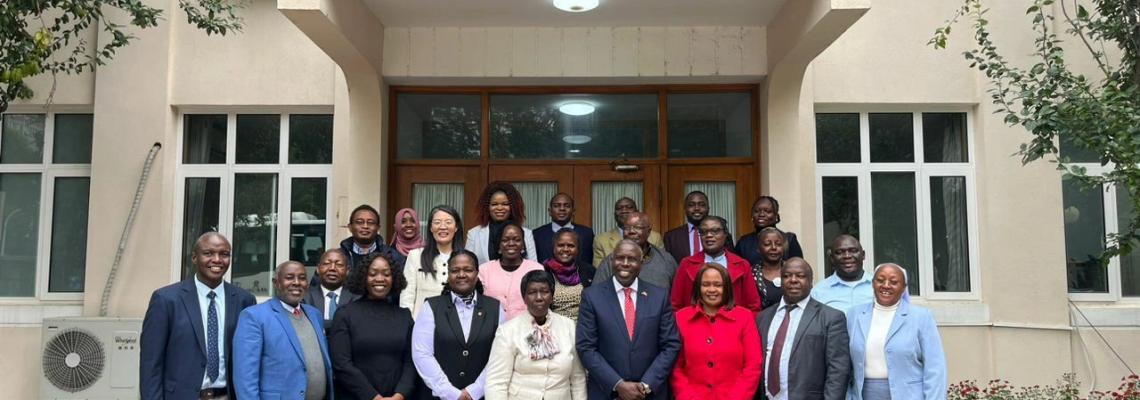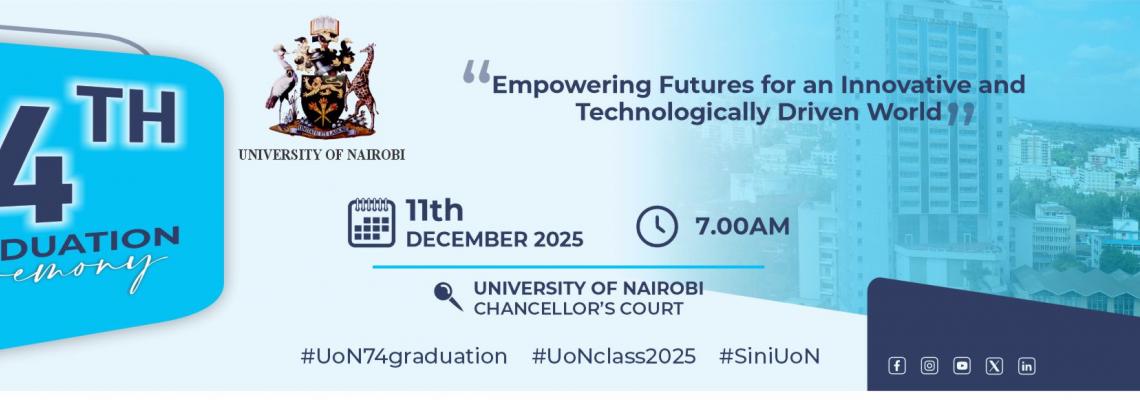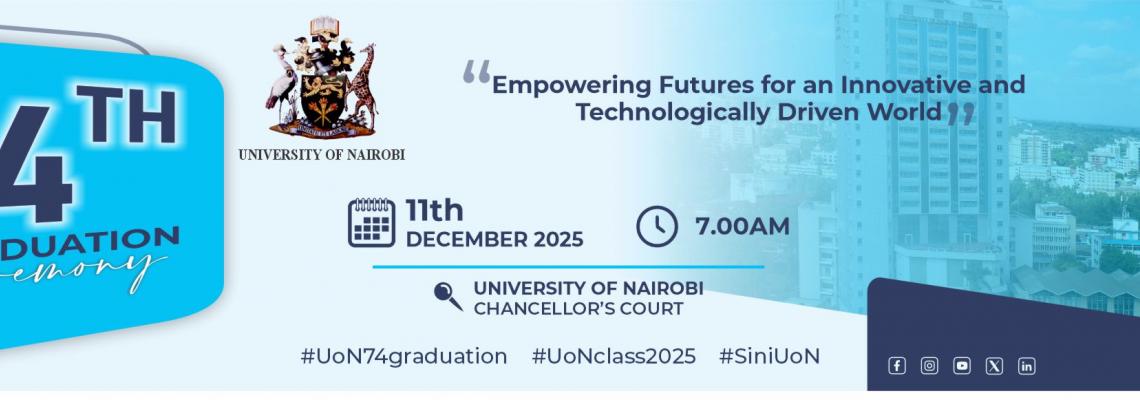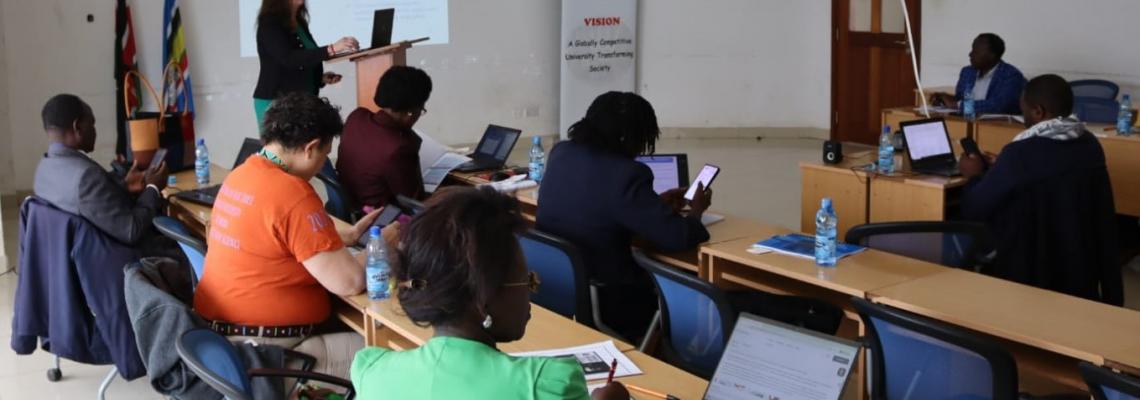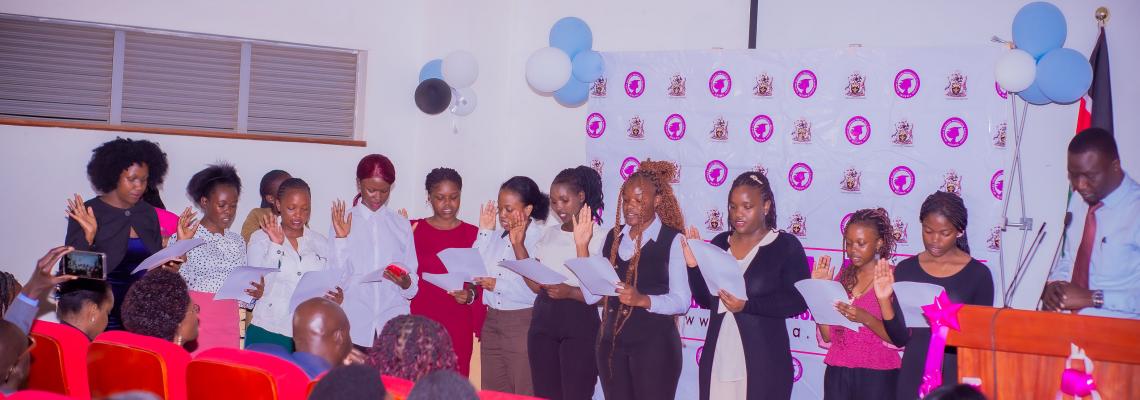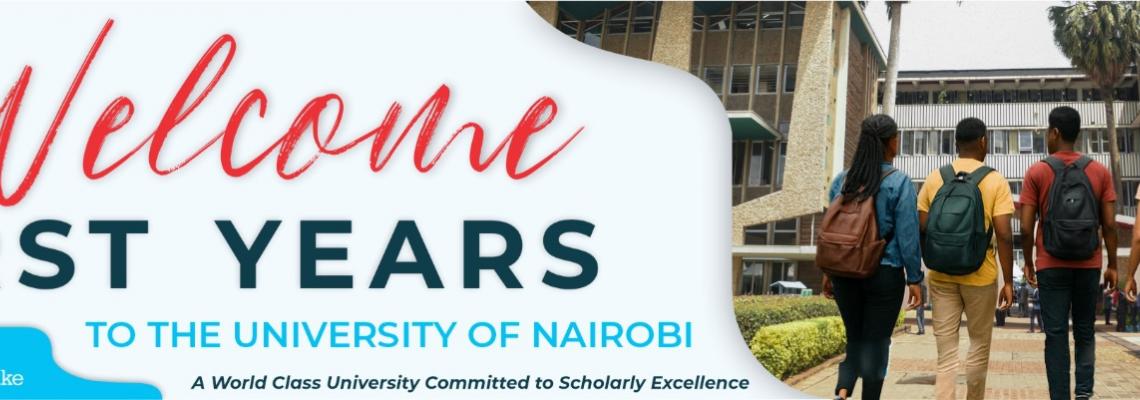Overview
The department of Educational Administration and Planning started Master of Education, Module II programmes in order to provide opportunities to people who want to further their studies in the specializations of Education Administration, Curriculum Studies, Educational Planning or Economics of education. These are people who have the University of Nairobi minimum entry requirements but who have not been admitted in the module I (regular) programme. The curriculum for both module I and module II programmes in terms of duration does not differ much.
Objective
- Acquire the necessary knowledge, skills, and attitudes in in education administration
- Acquire a deeper understanding of the complexities of planning, developing and managing educational systems.
- Analyze the multifaceted content of education management and formulate evidence - based solution-case scenarios.
- Develop professionalism in the practice of managing education.
- Design and carry out research in areas of educational administration
Philosophy
The programmes philosophy is anchored on the belief that theory and practice must be combined in a “hands-on” learning environment that focuses on experiential learning. The programme is demand-driven to meet the increasing need for competent educational managers, planners, economists, and curriculum developers for the education sector.
Rationale
The programme has been developed in accordance with the policy requirements of the Ministry of Education for teacher education as stipulated in Session Paper No. 1 of 2019. The curriculum is updated to meet the needs of the various stakeholders and synchronize them with Kenya Vision 2030; Medium Term Plan (2022-2027); the Strategic Plan of the Ministry of Education; the Sector Performance Standards 2009–2030; other education sector strategies; the Constitution of Kenya (2010); and the Kenya Universities Act No. 42 [(2012),(Revised 2016)], Agenda 2063 and CESA 2016 – 2025 of the African Union and Goal 4 of the Sustainable Development Goals (SDGs).
Structure
Structure
A student may enrol in the M.Ed programme either on a full time basis or on a part-time basis
The part time programme is offered in the evenings and during the school holiday period.
The programme offered during the holiday period is also known as the school based programme.
The full time programme shall extend over a minimum of four (4) semesters from the date of registration and a maximum of eight (8) semesters. The course shall consist of coursework, examination and Thesis.
The evening programme shall extend over a minimum of four (4) semesters from the date of registration and a maximum of twelve (12) semesters. The course shall consist of course work, examination and project.
The school based programme shall be an intensive course taught during the school holidays. Two school holidays of four weeks each will constitute a semester.
The programme shall comprise of 18 units.
During the first three semesters, a student shall take ten (10) compulsory (core) units. Each unit consists of 60 contact hours.
Students shall be required to take the 10 Core Units before being allowed to take elective courses for project or embark on their thesis.
Students shall be required to choose the topic for research thesis or projects after successful completion of Core Units.
Research thesis shall be considered to be equivalent to eight (8) units.
Research project shall be considered to be equivalent to four (4) units.
Students admitted into the M.Ed degree programme will specialize in any one of the following subject areas:
a) Educational Administration
b) Educational Planning
c) Economics of Education
d) Corporate Governance in Education
e) Curriculum Studies
f) Education in Emergencies
The course shall be conducted through lectures, discussion groups, seminars, field excursions and assignments.
Mode of Delivery
Module1. Physical classes at Kikuyu Campus and Kenya Science Campus
Module 2. Nairobi Evening and Outreach: Virtual Classes
Nairobi- Day: Physical Classes at Kikuyu campus
Face to Face Reflective learning; Open, distance and e-learning (ODEL) mode; case study analyses, presentations, assignments, discussions, tutorials, group projects, collaborative online learning, field and institutional visits
Admission Requirements
Admission Requirements
Bachelor of Education (Lower Second Class Honours) degree or equivalent qualifications. Bachelors degree (Lower Second Class Honours) and postgraduates Diploma in Education or equivalent qualifications.
Application Information
There is only one Intake in month of August every year/annually
Contact of Support Person
Prof Susan Chepkonga +254722647351, - Chairman;
Dr. Reuben Mutegi +254720679498- Coordinator Masters programme ,
Sylvia Gaita + 254725020425- office
Careers
Prospetive Career
M.Ed Graduates (Educational Administration) may undertake a variety of professional roles which include providing management and leadership within the education sector in the government, and private sector, training can work nationally and internationally in the education sector, monitoring and evaluation of education and social sector, undertake research, for organizations including central and county governments, NGOs, Consultants among other sectors. Many are also well-equipped to apply for and pursue doctoral-level work in Comparative and International Education. Finally, our graduates have been absorbed as lecturers in a number of universities in Kenya.
Attachment opportunities
- Internships or Practicum Placements: Educational institutions, government agencies, non-profit organizations, and educational consulting firms often offer internships or practicum placements for students pursuing degrees in educational management, policy, or curriculum studies. These opportunities allow students to gain hands-on experience in real-world educational settings, working alongside professionals in the field.
- Research Assistantships: Students interested in research within educational management, policy, and curriculum studies may have the opportunity to work as research assistants for faculty members or research centers. This involvement provides valuable experience in conducting literature reviews, data collection and analysis, and contributing to scholarly publications.
- Fieldwork and Observational Studies: Attachment opportunities may involve fieldwork or observational studies where students have the chance to observe and analyze educational institutions, policies, or curriculum implementation processes in action. This can provide valuable insights into the practical challenges and dynamics of educational systems.
- Professional Development Workshops and Seminars: Educational management, policy, and curriculum studies often involve attending workshops, seminars, and conferences where professionals share insights, best practices, and the latest research findings. These events offer attachment opportunities for students to network with experts in the field and stay updated on emerging trends and issues.
Fees and Funding
| MASTER OF EDUCATION -E55 | YEAR 1 | YEAR 2 | |||
| SEMESTER 1 - 5UNITS | SEMESTER 2 - 5UNITS | SEMESTER 1 -4UNITS | SEMESTER 2-PROJECT | TOTALS | |
| TUITION @ 25200 | 126,000.00 | 126,000.00 | 100,800.00 | 100,800.00 | 453,600.00 |
| MEDICAL FEE (PER YEAR) | 6,500.00 | - | 6,500.00 | - | 13,000.00 |
| ICT SERVICES - (PER YEAR) | 7,000.00 | - | 7,000.00 | - | 14,000.00 |
| EXAMINATION (PER UNIT @1000) | 5,000.00 | 5,000.00 | 4,000.00 | - | 14,000.00 |
| REGISTRATION (PER SEMESTER@2250) | 2,250.00 | 2,250.00 | 2,250.00 | 2,250.00 | 9,000.00 |
| ID CARD ( PER YEAR) | 1,000.00 | - | 1,000.00 | - | 2,000.00 |
| ACTIVITY-( PER YEAR) | 2,000.00 | - | 2,000.00 | - | 4,000.00 |
| CAUTION - (ONCE) | 5,000.00 | - | - | 5,000.00 | |
| LIBRARY (PER YEAR) | 5,000.00 | - | 5,000.00 | - | 10,000.00 |
| STUDENT ORGANISATION(PER YEAR) | 1,000.00 | - | 1,000.00 | - | 2,000.00 |
| THESIS EXAMINATION | - | - | - | 30,000.00 | 30,000.00 |
| Totals | 160,750.00 | 133,250.00 | 129,550.00 | 133,050.00 | 556,600.00 |
| Grand totals | 556,600.00 | ||||


